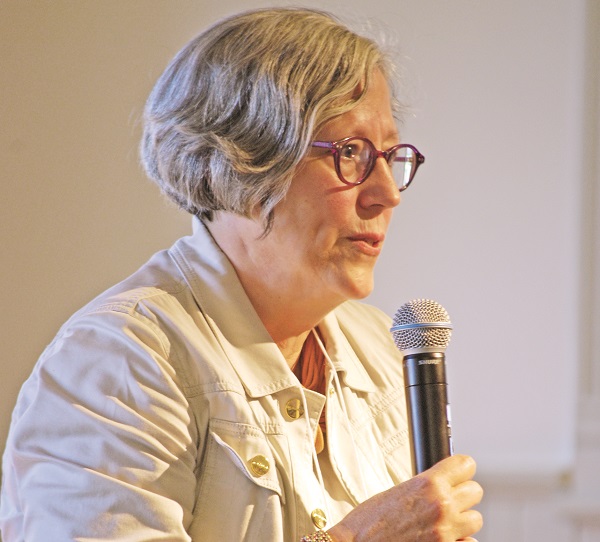General News » News
Community building will be at the heart of Aurora United Church reconstruction
September 24, 2014 · 1 Comments

By Brock Weir
Aurora lost more than a church on the April morning that destroyed Aurora United Church; it lost a community hub, and a community hub that is needed now more than ever.
That was the message coming out of a visioning session hosted by the United Church of Canada at the Aurora Cultural Centre last week focusing on the redevelopment of the Aurora United Church.
Bringing together a wide array of community leaders from Mayor Geoffrey Dawe and MPP Chris Ballard, to representatives of the Canadian Mental Health Association, Aurora Chamber of Commerce, York Region Food Network, and area business owners, the meeting focused on what the needs of the Aurora community are right now, and how some of these pressures can be alleviated by a newly rebuilt church.
While representatives each had different ideas on how a church such as Aurora United could rise to the occasion, the common theme was it needs to be a resource for the entire community.
A primary focus was to give a hand-up to individuals in the Aurora community who might not be those “in plenty.” Aurora is not a community where everyone can “escape to a summer cottage”, they said, but one with very real and immediate needs. Affordable housing and access to food was one common challenge and a physically re-established church could be the starting point for many looking for help.
“We realise this was a community in flux and we realise this is a community in change,” said Helen Roberts, speaking on behalf of her breakout group which included Mr. Ballard, local business owners, and representatives from York Region EMS. “The one part that is really important is there are lots of different groups working out there to help different parts of the community and perhaps we need to be working together a little bit more. We need those partnerships, those informal links need to come together so we know what each other is doing, we’re not duplicating services, but we are providing as much as we can to the community.”
Particular challenges in this area, she added, are the revitalization of Aurora’s Downtown Core and addressing the needs of Aurora’s aging population.
For others, the community needs are becoming even more complex. Sharon Suter, coordinator of the Housing First program for the Canadian Mental Health Association, says the concept of the working poor is something that was staggering to her. They are struggling to find places to stay and facing myriad other challenges.
“The people who need our assistance have more complex needs,” she said. “We’re not faced with the white, Caucasian straight person; there are people who are survivors of war, there are racialized people, people who are trans, and the services are really stretched.”
Affordable housing was a common theme and with both Aurora’s MPP and Mayor in attendance, there were a lot of questions on how this could become a reality and what part a new Aurora United Church could play in the process.
“Whether it be at Aurora United Church, or whether it be elsewhere, one of the common themes we’re talking about was having a centralized hub where somebody who is in need could come and whether the services are housed in a centralized location, or whether it is just representatives who could come and help people connect to Sport Aurora, Mental Health, Scouts Canada, how do we connect them with a plethora of services?” said one Church rep. “A centralized location in a centralized part of Town would be an absolute gem that does not exist in the community today.”
But Joan Stonehocker, Executive Director of the York Region Food Network, suggested whatever rises from the ashes should take a more proactive approach.
“Pointing to affordable housing would be great if there was any,” she said. “I also think we need to look at the bigger picture, and that is the reason people can’t afford housing. I think the church has a real opportunity to be advocated for these people. The assistance rates are woefully inadequate. It isn’t enough to raise people above the poverty line. I think we need to look at what the root causes are and start addressing those.”
At the end of the session, attendees agreed it was a worthwhile morning, fostering a dialogue that should continue.
“One of the things I want to see as a resident and as an MPP is a focus on how we build sustainable communities,” said Mr. Ballard. “We have to break down barriers between the variety of silos and work together.”












“a community hub .. is needed now more than ever” is a commendable suggestion. However, it begs the realization that accessibility to it would be paramount. Without adequate provision for both pedestrian and vehicular accessibility, its multitude of associated functions and services would only serve to compound the core area’s congestion. Its ground level should be dedicated to access by transit, cabs and special-needs vehicles. And its sub-level(s) should be dedicated to regular vehicle parking. Only with such viable access can a “community hub” be viable, particularly in an already congested area such as our downtown core!